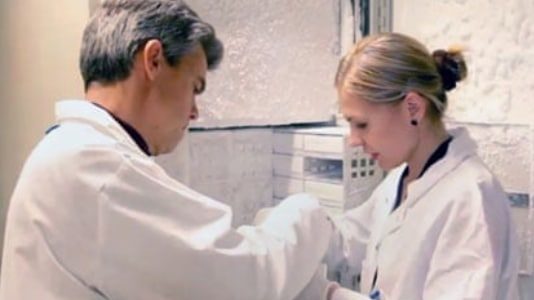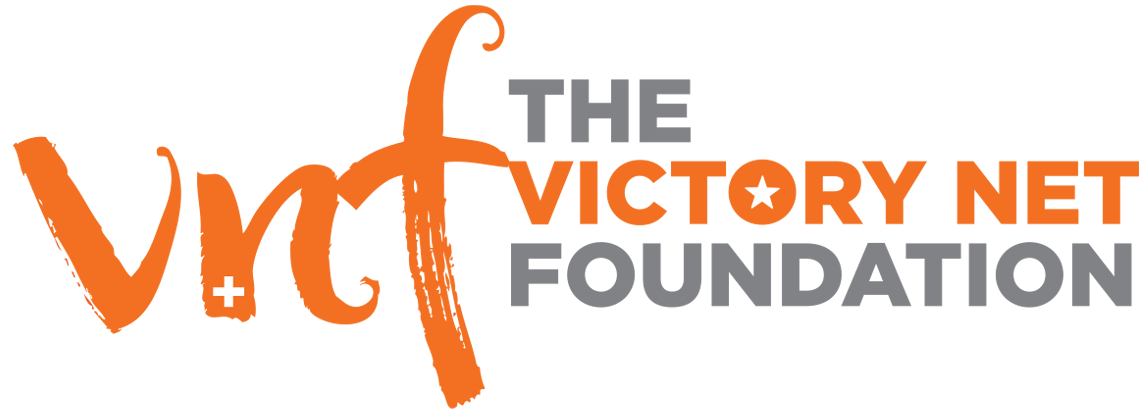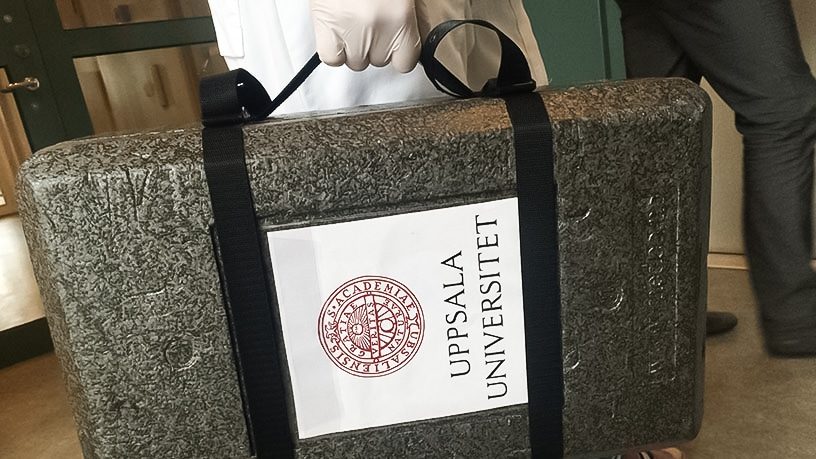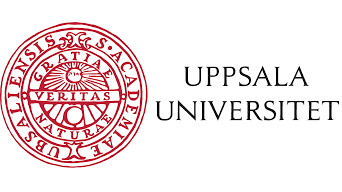University of Uppsala
University of Uppsala
The University of Uppsala Faculty of Medicine (Sweden) is currently considered one of the world’s leading research centres on neuroendocrine cancers.
The Victory NET Foundation supports the research and clinical trials of an anti-NET virus carried out by a team in the Department of Immunology, Genetics and Pathology at the University of Uppsala (Sweden).
MEMBERS

Professor Kjell Öberg
Kjell Öberg is a professor of endocrine oncology in the Faculty of Medicine at the University of Uppsala and specialises in endocrinology and internal medicine.
With 40 years of experience in the field of neuroendocrine tumours, he is the founder and former head of the Department of Endocrine Oncology at Uppsala University Hospital.
He is also one of the founders and coordinators of the European Neuroendocrine Tumour Society (ENETS). He supports its research on the AdVince treatment carried out by its team and under the responsibility of Professor Magnus Essand. Magnus Essand.

Professor Magnus Essand
As a professor of gene therapy within the Department of Immunology, Genetics and Pathology at the University of Uppsala, Magnus Essand and his research team have been working on a completely new approach to the treatment of neuroendocrine tumours since 2008. Their research focuses primarily on advances in translational immunotherapy (or transfer research) for cancer and on the development of oncolytic viruses (an inoculation process to stimulate the immune system).
Prior to joining the University of Uppsala, Magnus Essand worked at the American National Cancer Institute (NCI) and has published nearly 95 scientific papers.
He is also the co-founder of Elicera Therapeuticas AB, a clinical stage immuno-oncology company developing cell and gene therapies for immune-based cancer treatments.

Doctor Justyna Leja-Jarblad
Dr. Justyna Leja-Jarblad was a researcher within the Department of Immunology, Genetics and Pathology at the University of Uppsala.
Justyna obtained her Master of Science from the Jagiellonian University of Krakow (Poland) in the field of medical biotechnologies. She then completed her doctorate as a member of Professor Magnus Essand’s research group at the University of Uppsala.
The main aim of her research is to develop viruses as anti-cancer agents, mainly in relation to neuroendocrine tumours and neuroblastomas, which are cancers commonly found in children.
Two medical pioneers aim to trial a cancer-killing virus. I aim to help out

Two researchers at the University of Uppsala have engineered a virus that will attack cancer. Cheap, precise, with only mild, flu-like side-effects, this plucky little microbe sounds too good to be true. Yet in peer-reviewed articles in top journals, Professor Magnus Essand and Dr Justyna Leja have repeatedly showed that Ad5[CgA-E1A-miR122]PTD views healthy tissue with disdain; it eats only tumours. It is, in effect, a cancer of cancer.
Clinical trial approved for new cancer treatment
The Swedish Medical Products Agency and the Regional Ethics Committee has approved the initiation of a clinical trial for a completely new form of neuroendocrine cancer treatment that uses an oncolytic virus. The virus owes its development to donations from thousands of people all over the world. The researchers behind the virus are professor Magnus Essand and researcher Justyna Leja, both of the Department of Immunology, Genetics and Pathology, Uppsala University, as well as Kjell Öberg, emeritus professor of endocrine oncology at the Department of Medical Sciences, Uppsala University.
ONCOLYTIC VIRUS THERAPY, PART 1 - A POTENTIAL BREAKTHROUGH TREATMENT FOR NEUROENDOCRINE TUMORS
Professor Dr. Kjell Oberg PhD of Uppsala University Hospital in Sweden, speaks about Oncolytic Virus Therapy for Neuroendocrine Tumors (NETs). This talk was recorded on 2 November 2012 at Mt Elizabeth Novena Hospital in Singapore.
In this talk, Dr Oberg describes and illustrates exactly how the virus is developed, how it is targeted to NET cancer tumors, and the potential benefit to patients. The programme was produced by Carcinoid & Neuroendocrine Tumor Society of Singapore.
Oncolytic Virus Therapy, Part 2 - A Potential Breakthrough Treatment for Neuroendocrine Tumors
Professor Dr. Kjell Oberg PhD of Uppsala University Hospital in Sweden, speaks about Oncolytic Virus Therapy for Neuroendocrine Tumors (NETs). This talk was recorded on 2 November 2012 at Mt Elizabeth Novena Hospital in Singapore.
Much has been written about a potential new treatment for neuroendocrine tumors being developed by Dr Oberg’s team at Uppsalla – a treatment which uses customised (ie- molecularly engineered) viruses to target NET cancer tumor cells.
In the lively Q&A session which follows the talk, audience concerns about time-to-market, cost-of-development and potential toxicities are addressed. The programme was produced by Carcinoid & Neuroendocrine Tumor Society of Singapore.
THE ONCOLYTIC VIRUS FUND - UPPSALA UNIVERSITY – PROF MAGNUS ESSAND, UPPSALA UNIVERSITY
Professor Magnus Essand at Uppsala University has during six years developed and tested a new virus treatment against neuroendocrine tumours. The treatment consists of an oncolytic virus which has turned out to be remarkably efficient in destroying neuroendocrine tumours in mice. With enough funding we will be able to start the world’s first human trials with a virus that specifically targets neuroendocrine cancer.
Help us develop a treatment for neuroendocrine cancer – prof Magnus Essand, Uppsala University
The goal of the Oncolytic Virus Fund is to collect money for research on cancer-destroying (oncolytic) viruses and cancer therapeutics for neuroendocrine tumours. With sufficient funds, we will be able to launch the world’s first human trial of an engineered virus that targets neuroendocrine cancer.
Elicera Therapeutics – Advancing cancer immunotherapy
The projects that create the foundation for Elicera Therapeutics are based on many years of research on how cells and viruses can be genetically engineered to trigger a powerful immune response to cancer. The researchers combine different types of immune-activating technologies, each of which gives rise to a multifaceted attack on the tumors. To date, the research group, headed by Uppsala University Prof. Magnus Essand, has developed four drug candidates, two of which are in the field of oncolytic viruses and two in the field of CAR T-cell therapies, and the hope is that their candidates will lead to more effective treatment of neuroendocrine tumors, B-cell lymphoma, brain tumors and pancreatic cancer.
THE TREATMENT OF ADVANCED PANCREATIC NEUROENDOCRINE TUMOURS
The treatment of advanced pancreatic neuroendocrine tumours (pNET) Prof Kjell Öberg – University Hospital, Uppsala, Sweden Prof Kjell Öberg discusses the development of new biomarkers which allow early detection of pNET and identify patients who are at high risk of recurrence after surgery and speaks about the superiority of molecular imaging with PET scan over traditional imaging technologies.
ABOUT US
NET TUMOURS
- © 2025 Victory Net Foundation
- Legal information
- Designed by webgeneve
- © 2025 Victory Net Foundation
- Legal information
- Designed by webgeneve


